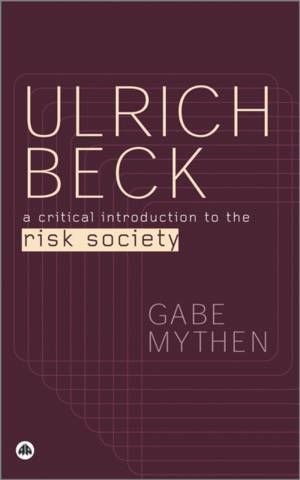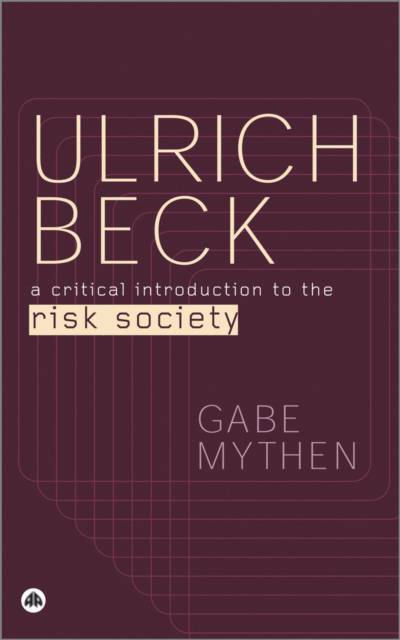
- Afhalen na 1 uur in een winkel met voorraad
- Gratis thuislevering in België vanaf € 30
- Ruim aanbod met 7 miljoen producten
- Afhalen na 1 uur in een winkel met voorraad
- Gratis thuislevering in België vanaf € 30
- Ruim aanbod met 7 miljoen producten
Zoeken
Ulrich Beck: A Critical Introduction to the Risk Society
A Critical Introduction to the Risk Society
Gabe Mythen
Paperback | Engels
€ 55,45
+ 110 punten
Omschrijving
Ulrich Beck has emerged as one of the leading thinkers of the age. His principal claim to fame is as author of the widely acclaimed 'Risk Society', first published in 1986. Since this time, Beck's work has had a profound effect on the trajectory of social theory, leading to him being hailed as a zietgeist sociologist. The risk society thesis has gained credence within the academic community and across the disciplines as a means of explaining the large-scale changes that have enveloped contemporary society.Despite its continued popularity as a touchstone for debate, the risk society perspective is yet to be systematically unravelled. Gabe Mythen provides both an introduction to and a critique of Beck's work that places his contribution within the context of other theorists of risk, such as Giddens, Douglas and Foucault. Key areas of analysis include risk and the environment, lifestyles and risk, public perceptions, media representations of danger and the changing nature of political engagement.
Specificaties
Betrokkenen
- Auteur(s):
- Uitgeverij:
Inhoud
- Aantal bladzijden:
- 240
- Taal:
- Engels
Eigenschappen
- Productcode (EAN):
- 9780745318141
- Verschijningsdatum:
- 20/06/2004
- Uitvoering:
- Paperback
- Formaat:
- Trade paperback (VS)
- Afmetingen:
- 135 mm x 215 mm
- Gewicht:
- 340 g

Alleen bij Standaard Boekhandel
+ 110 punten op je klantenkaart van Standaard Boekhandel
Beoordelingen
We publiceren alleen reviews die voldoen aan de voorwaarden voor reviews. Bekijk onze voorwaarden voor reviews.








